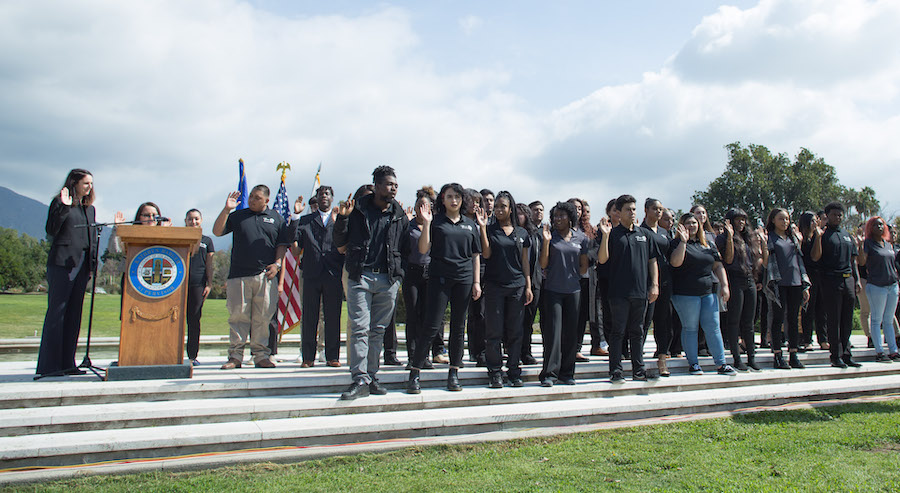
The nonprofit iFoster has been awarded a $4.3 million Public Health AmeriCorps grant to train transition-age foster youth to provide patient services to vulnerable populations in California.
The renewable three-year grant will create 100 part-time jobs across the state per year that will have transition-aged youth working at health centers to help uninsured, under-insured, or MediCal-covered California residents navigate resources, enroll in government benefits and schedule medical appointments.
Those new slots are in addition to the organization’s existing partnership with AmeriCorps to employ transition-age youth as peer navigators, which includes 266 full-time positions in California, Kentucky, Nevada, New York, Ohio and Washington.
These positions are “an important stepping stone for entry into careers in healthcare, a pathway many foster youth desire but find it difficult to enter without advanced degrees,” iFoster Executive Director Serita Cox said in a press release.
Cox said that youth who serve in these roles will get priority for interviews and full-time positions at the health centers after their AmeriCorps service ends. They will also have the opportunity to earn free certifications for in-demand health care jobs, including medical assistants, community health workers and peer specialists.
Truckee, California-based iFoster provides career development and other services aimed at helping foster youth successfully exit the system into independence. The group has worked with AmeriCorps since 2019, when it launched a peer navigation program that employed current and former foster youth between the ages of 18-23 to help connect peers in foster care to resources and services.
The new public health positions will be based on the existing peer-navigator model, which in 2019 beat out 175 other programs across the country to win AmeriCorps’ best new program award. iFoster is also getting an American Rescue Fund Act planning grant of roughly $238,000 to build a model to support other AmeriCorps programs that work with foster youth.
Roughly 20,000 teens and young adults age out of foster care each year in America, and according to Cox, only about 1 in 5 feel prepared for adulthood when that day comes. This group of residents is getting growing attention from local governments and social service agencies aiming to address bleak outcome data showing that former foster youth experience higher rates of homelessness, incarceration, underemployment and poor health outlooks.
According to a 2018 report from Los Angeles County, 50 percent of transition-age foster youth in LA County are unemployed four years after leaving foster care. Fifty percent of that group will experience homelessness, and 70 percent will depend on governmental assistance to get by.
Correction: This article erroneously noted that about 20,000 youth age out of foster care in California each year; that is a national figure.


